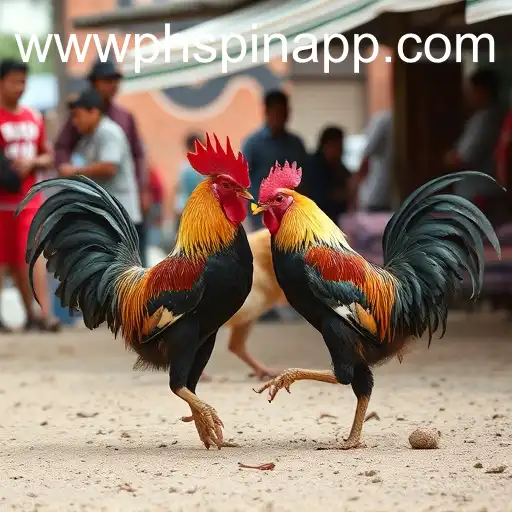
Cockfighting: An Ancient Tradition with Modern Challenges

Cockfighting: An Ancient Tradition with Modern Challenges
Introduction to Cockfighting
Cockfighting has been a controversial and enduring sport that traces back thousands of years. This activity involves placing two roosters, specially bred and trained to be aggressive, in a ring to fight while people place bets on the outcome. While often criticized for its brutality, cockfighting persists in various cultures around the globe, operating both openly and clandestinely.90jili APK
The Historical Roots of Cockfighting
Cockfighting’s origins are believed to date back to at least 2,500 years ago, with records of the practice in ancient Persia. It spread to Greece, Rome, and other parts of Europe through historical conquests and trade routes. In these societies, cockfighting was not only a form of entertainment but also a symbol of courage and prowess. Today, cockfighting has taken on different cultural significances depending on the region.
Cockfighting in Modern Culture
Modern cockfighting has adapted to societal changes, yet it retains its enigmatic allure. In places like the Philippines, it is deeply embedded in cultural traditions and often associated with festivals and community gatherings. However, the modern age has also introduced new challenges and platforms, bringing cockfighting into the digital realm.
The Role of Technology in Cockfighting: The PHSPIN App
The PHSPIN app represents a burgeoning digital platform that has adapted cockfighting to fit within the technological age. This app allows enthusiasts to engage with the sport virtually, offering live-streamed events, digital betting, and forums for discussion. While apps like PHSPIN bring convenience and broad accessibility, they also spark concerns about the ethical and legal implications of facilitating such activities online.
There are ongoing debates about whether platforms like the PHSPIN app could perpetuate the underground nature of cockfighting, making it more difficult for authorities to regulate and enforce legal bans. As such, the legal status of these apps varies greatly across different jurisdictions.JL9 casino
Legal and Ethical Considerations
The legality of cockfighting varies significantly around the world. In many countries, it is banned due to concerns about animal cruelty. In the United States, for instance, cockfighting is illegal in all 50 states. However, enforcement varies, and illegal cockfighting rings still operate in secrecy.
From an ethical perspective, animal welfare organizations argue that the sport is inherently cruel and inhumane. This has led to calls for stricter enforcement of existing bans and increased public awareness about the negative implications of supporting such activities.Jili77 games
Cultural Perspectives on Cockfighting
While criticized for its cruelty, cockfighting is defended by some as a cultural tradition that should be preserved. In regions where cockfighting is legal, advocates argue that it plays a significant role in local economies and cultural identity.
In countries like the Philippines, cockfighting is not only seen as a competition but also as an important social event that brings communities together. These cultural events are significant contributors to local economies, with betting, breeding, and maintenance of fighting cocks providing employment to many.
The Future of Cockfighting in a Digital Age
The digitalization of cockfighting through apps like PHSPIN could change how this ancient sport is perceived and practiced. The ability to reach a global audience could either support its continued practice or lead to increased scrutiny and regulation.
Those involved in the development of such apps face the challenge of balancing cultural preservation with ethical responsibilities. This could involve integrating features that emphasize humane treatment and breeding practices to align with modern welfare standards.Plus777 link
Conclusion
While the future of cockfighting remains uncertain in light of modern technological advancements and ethical considerations, it is crucial to address these challenges with sensitivity to cultural nuances. As the sport continues to evolve, ongoing discussions about its place in contemporary society are more important than ever.90jili APK
As cockfighting navigates its way through the complexities of law, culture, and technology, the decisions made today will shape the legacy of this ancient sport in the years to come.
FortuneSheep: A Thrilling New Game Experience with PHSPIN App

Explore the exciting world of FortuneSheep, a captivating game that has taken the gaming community by storm. Discover its unique gameplay, rules, and how it perfectly integrates with the PHSPIN app.
2026-02-08
SpeedWinner: A High-Speed Adventure with PHSPIN App

Delve into the exhilarating world of SpeedWinner, a captivating game available on the PHSPIN app. Learn about the game's unique features, its introduction in the gaming industry, and the rules players must master to win.
2026-02-07
Discover the Exciting World of BuffaloPower on the PHSPIN App

Unleash the thrill of BuffaloPower game on PHSPIN app with an engaging gameplay experience, comprehensive rules, and an in-depth introduction.
2026-02-06
Unlocking the Thrill of MassiveLuckBonusBuy: The PHSPIN App Experience

Dive into the captivating world of MassiveLuckBonusBuy through the PHSPIN app, exploring the game's unique mechanics and allure in today's digital landscape.
2026-02-05






